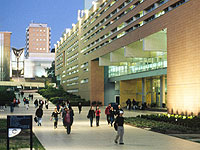| Sexuality and Power: The Social Relations of Sex and the Sexes - WOMS2006 |
|
||||||||||||||||||||||||||||||||||||||||||||||

Description Introduces some of the main theories of power and of sexuality; analyses different sexualities, and issues relating to sexuality, in the context of theories of power. Topics include compulsory heterosexuality; the construction of masculinity, femininity and desire; marriage and prostitution; sexuality and work; body politics; and pornography and popular culture.
Learning Outcomes On successful completion of this course, students should be able to:
Assessment
|
|||||||||||||||||||||||||||||||||||||||||||||||

| Contacts | Library | myUNSW | WebCT |